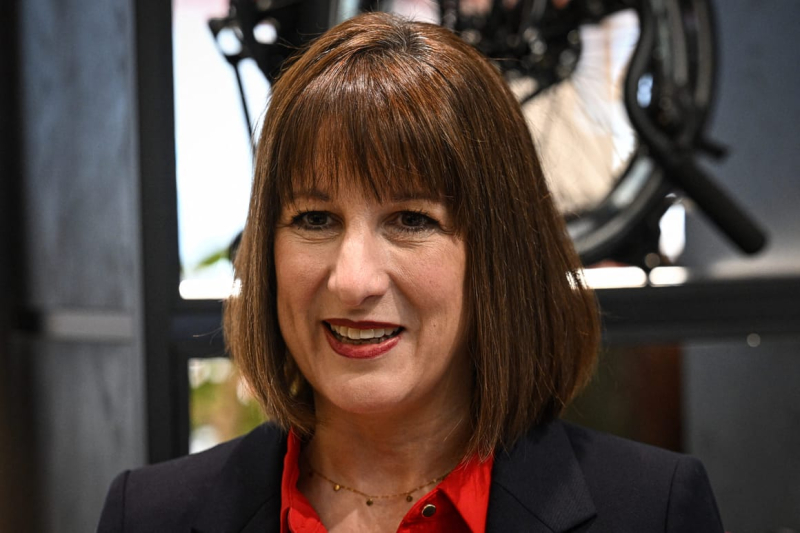Better-than-expected figures come as Rachel Reeves faces intense scrutiny.
U.K. inflation eased a little in December, bringing some relief to a government under severe pressure from soaring borrowing costs.
Prices rose by 2.5 percent from a year earlier, the Office for National Statistics said Wednesday, down from 2.6 percent in November. Excluding volatile food and energy prices, the annual rate fell more clearly, to 3.2 percent from 3.5 percent. Both measures came out lower than the market had expected.
The news will have prompted sighs of relief in No. 11 Downing St., after a week in which a combination of slower growth and higher borrowing costs have put a harsh spotlight on Chancellor Rachel Reeves’ fiscal plans.
The government’s long-term borrowing costs have hit their highest in nearly 30 years and the pound has slumped to its lowest in over a year as investors fret about the effects of her first budget on the economy. Those moves have been compounded by a rise in market interest rates in the U.S., where most analysts expect U.S. President-elect Donald Trump to pursue policies that will stoke inflation.
While the U.K.’s bond markets have struggled to decouple from the U.S.’, its economy has clearly slowed since Reeves’ budget in October, which dented confidence among both households and businesses with a suite of tax increases and extra borrowing.
That has raised the stakes for the Bank of England in its fight to get inflation down to a point where it can provide relief by cutting interest rates. Inflation has proved stubborn over the last year, and services inflation in particular, which is largely divorced from global factors, has stuck well above the Bank’s target of 2 percent for the CPI as a whole.
Devil in the details
In that respect, the most encouraging part of Wednesday’s release was a sharp decline in services inflation to 4.4 percent from 5 percent in November. But analysts said the improvement, while real, was deceptively large and distorted by short-term developments in airfares.
Airfares usually rise sharply in November due to seasonal effects, but didn’t do so this year, because the ONS took the price of return flights on Christmas Eve as its reference date. Because no-one usually wants to fly on Christmas Eve, prices were lower than they would normally have been. In previous years when the ONS’s deadlines have worked this way, the effect has usually unwound immediately in January, Barclays analysts Jack Meaning and Abbas Khan said in a note to clients.
Despite that, Meaning and Khan said the overall figures did reflect a real, if somewhat gentler, slowdown in inflation.
“Taken together, we think this will give the Monetary Policy Committee confidence to cut in February and leaves it on course for cuts beyond,” they wrote.
Three of the Bank’s nine-strong MPC had already voted to cut the Bank Rate to 4.50 percent at their last meeting in December, and Deputy Governor Sarah Breeden hinted in a speech earlier this week that she, too, may vote for a cut when it next meets on Feb. 6, saying that recent evidence had supported the case for making monetary policy less restrictive.
The bond market appeared to agree on Wednesday: it reacted to the news by pushing yields down from their recent highs, and there was strong bidding at a regular auction of 10-year gilts. Market pricing now reflects expectations of two quarter-point cuts this year.
The pound also held its own against the dollar after the news, suggesting that the numbers had at least avoided undermining market confidence any further.
“There is still work to be done to help families across the country with the cost of living,” said Reeves in a statement Wednesday. Her boss, Prime Minister Keir Starmer, insisted at prime minister’s questions in the House of Commons, that she would in the job for “many, many years to come.”

